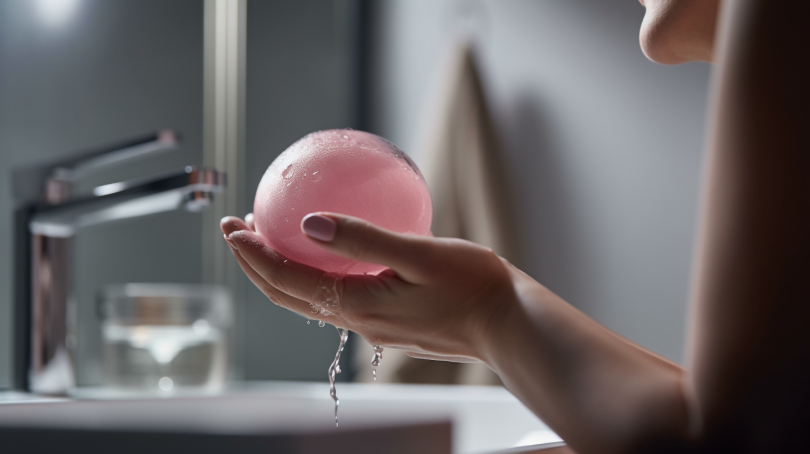The Ultimate Guide to Razor Cleaning: Tips and Tricks for a Pristine Shave
Welcome to “The Ultimate Guide to Razor Cleaning: Tips and Tricks for a Pristine Shave”! Whether you’re a daily shaver, a grooming enthusiast, or just someone looking for a closer and more comfortable shave, proper razor maintenance is essential. A clean razor not only ensures a smooth and irritation-free shave but also helps extend the lifespan of your razor. In this comprehensive guide, we will walk you through the step-by-step process of cleaning your razor effectively, along with some valuable tips and tricks to keep it in pristine condition.
Why is Razor Cleaning Important?
Before we dive into the cleaning process, let’s understand why it is crucial to keep your razor clean. Over time, razors accumulate dirt, dead skin cells, oils, and bacteria. If left uncleaned, these build-ups can lead to several issues:
- Poor Performance: A clogged razor blade can result in an inefficient shave. Dirt and debris hinder the blade’s ability to glide smoothly across the skin, leading to tugging and irritation.
- Irritation and Infections: Bacteria thrive in damp environments, such as a dirty razor. Using an uncleaned razor increases the risk of skin infections like folliculitis or even more severe conditions like cellulitis.
- Dull Blades: Razor blades naturally become dull over time due to repeated use. However, debris accumulation accelerates this process. Regular cleaning helps remove built-up gunk that can dull your blades prematurely.
- Longevity: Taking care of your razor by cleaning it regularly can significantly extend its lifespan. This means fewer trips to the store for replacements and more money saved in the long run.
Gather the Supplies
Before you begin the cleaning process, make sure you have the following supplies on hand:
- A clean towel or paper towels
- Isopropyl alcohol or hydrogen peroxide
- A small bowl or sink filled with warm water
- A soft-bristle toothbrush or a specialized razor cleaning brush
- A gentle soap or dishwashing liquid
- Optional: Razor lubricant or oil for maintenance
Step-by-Step Guide to Cleaning Your Razor
Now that we have all the necessary supplies, let’s get started with the step-by-step process of cleaning your razor:
Step 1: Rinse the Razor Thoroughly
The first and most crucial step is to rinse your razor under warm water. This helps remove any loose debris and softens any stuck-on residue, making it easier to clean. Make sure to rinse both sides of the blades and the handle.
Note: If you are using a disposable razor, skip to Step 5 for specific instructions on cleaning disposable razors.
Step 2: Disassemble the Razor (If Possible)
If your razor has removable parts, such as a detachable blade or an interchangeable head, carefully disassemble it. This allows for a more thorough cleaning by accessing hard-to-reach areas.
Step 3: Soak the Razor in Warm Water and Soap Solution
Fill a small bowl or sink with warm water and add a few drops of gentle soap or dishwashing liquid. Gently swirl the water to create a soapy solution. Place the disassembled razor parts into the solution and let them soak for 5-10 minutes. This helps loosen any stubborn residue.
Step 4: Scrub the Razor
Using a soft-bristle toothbrush or a specialized razor cleaning brush, gently scrub each part of the razor. Pay close attention to the blades, as this is where most debris accumulates. Use light pressure and small circular motions to dislodge any remaining gunk.
Note: Be cautious while cleaning the blades to avoid accidental cuts. Always hold the razor by its handle, keeping your fingers away from the sharp edges.
Step 5: Rinse and Dry Thoroughly
Once you have scrubbed all the parts, rinse them under warm water to remove any soap residue or loosened debris. Ensure that all traces of soap are gone before drying.
Gently pat each part dry with a clean towel or paper towels. Avoid rubbing vigorously, as it can damage the blades or other delicate components.
Step 6: Sanitize with Isopropyl Alcohol or Hydrogen Peroxide (Optional)
If you want to take an extra step to ensure optimal cleanliness, consider sanitizing your razor using isopropyl alcohol or hydrogen peroxide. Dip a cotton ball or pad into either solution and wipe down all parts of the razor thoroughly. This kills any remaining bacteria and helps prevent infections.
Note: Avoid using alcohol or hydrogen peroxide on plastic components of your razor, as they may cause discoloration or damage.
Step 7: Reassemble and Lubricate (If Applicable)
If you disassembled your razor in Step 2, carefully reassemble it once all the parts are dry. Ensure that everything fits snugly and securely.
If you want to go the extra mile in maintaining your razor’s performance, apply a small amount of razor lubricant or oil to the blades. This reduces friction and helps keep the blades sharp for longer.
Additional Tips and Tricks
Now that you know how to clean your razor effectively, here are some additional tips and tricks to help you maintain a pristine shave:
- Store your razor properly: After cleaning, make sure to store your razor in a dry place. Moisture can promote bacterial growth and cause rusting.
- Replace blades regularly: No matter how well you clean and maintain your razor, the blades will eventually become dull. Replace them as soon as they show signs of wear or after a certain number of uses.
- Avoid sharing razors: Sharing razors increases the risk of infections and transmission of bacteria. Stick to using your own razor for hygiene purposes.
- Clean after each use: To prevent debris from accumulating, rinse your razor under warm water after each use. This quick rinse helps remove most residue before it has a chance to harden.
In Conclusion
Cleaning your razor is an essential part of maintaining a hygienic shaving routine and ensuring optimal performance. By following the step-by-step guide outlined in this tutorial, you can keep your razor in pristine condition, enjoy a closer shave, reduce irritation, and save money in the long run. Remember to clean your razor regularly, replace blades when necessary, and store it properly for maximum longevity. Happy shaving!




